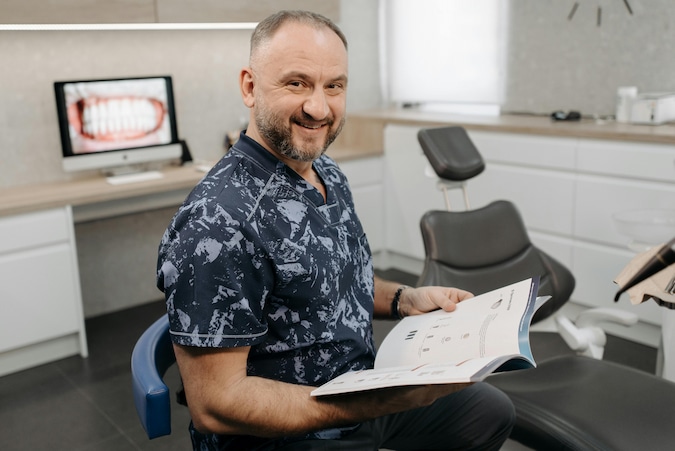
Understanding Dental Insurance for Whitening and Veneers

Looking to brighten your smile with whitening or veneers? Dental insurance typically doesn’t cover cosmetic procedures, but exceptions exist. Learn more here.
Cosmetic dentistry, including teeth whitening and veneers, has become increasingly popular. However, many patients are unsure whether their dental insurance will cover these procedures. While cosmetic treatments are often not included in standard insurance plans, understanding the nuances of coverage, possible exceptions, and alternative financing can help you make informed decisions. For comprehensive coverage options, consider exploring dental insurance plans tailored to your needs.
Key Takeaways:
- Dental insurance typically does not cover cosmetic procedures like whitening and veneers.
- There are exceptions where insurance may cover veneers if they are deemed necessary for dental health.
- Understanding your plan’s details, exploring alternative financing, and maximizing your benefits can help manage costs.
Understanding Dental Insurance for Cosmetic Dentistry

Dental insurance is primarily designed to cover preventive and restorative care. Standard plans often include cleanings, exams, and treatments for issues like cavities or gum disease. However, when it comes to cosmetic dentistry—procedures done to enhance appearance rather than address health issues—coverage is usually minimal or nonexistent.
Types of Dental Insurance Plans
Dental insurance plans typically fall into three categories: PPO (Preferred Provider Organization), HMO (Health Maintenance Organization), and Fee-for-Service plans. Each type varies in coverage and costs, but cosmetic procedures are generally excluded across the board. Understanding the specifics of your plan is essential to avoid unexpected costs when considering cosmetic treatments.
Teeth Whitening: Insurance Coverage Explained
Teeth whitening is one of the most popular cosmetic procedures for enhancing a smile. It involves bleaching the teeth to remove stains and discoloration, resulting in a brighter appearance. However, because teeth whitening is purely cosmetic, it is typically not covered by dental insurance.
Factors That May Influence Coverage
While rare, there are instances where teeth whitening might be covered by insurance. For example, if the discoloration is caused by medication or is a result of dental trauma, insurance may offer partial coverage. However, this is not the norm, and such cases often require thorough documentation and justification from your dentist.
Alternatives to Insurance Coverage
If insurance does not cover teeth whitening, there are alternative ways to reduce costs. Dental discount plans can provide savings on cosmetic procedures. Additionally, choosing between in-office whitening treatments, which tend to be more expensive, and at-home kits can also help manage costs effectively.
Veneers: Insurance Coverage and Exceptions
Veneers are thin, custom-made shells that are bonded to the front of teeth to improve appearance. They are often used to correct issues such as discoloration, chips, or minor misalignment. Because veneers are considered cosmetic, most insurance plans do not cover them. However, there are exceptions where insurance might help cover the cost.
When Veneers May Be Covered
In certain situations, veneers might be covered if they are necessary for dental health. For instance, if a tooth is severely damaged due to an accident or decay, and a veneer is needed to restore its function, insurance may provide coverage. Additionally, some plans may cover a portion of the cost if veneers are required to protect the integrity of the teeth.
Financing Options for Veneers
For those facing out-of-pocket expenses, there are several financing options available. CareCredit is a popular choice that offers flexible payment plans. Many dental practices also provide in-house financing options, allowing patients to spread the cost over several months. Discussing these options with your dentist can help make veneers more affordable.
Appealing Insurance Decisions and Finding Alternatives
If your insurance claim for a cosmetic procedure is denied, you can take steps to appeal the decision. Start by contacting your insurance provider to understand the reason for the denial. Often, claims are denied due to lack of documentation or because the procedure is deemed non-essential.
How to Write an Effective Appeal
When writing an appeal letter, include all necessary documentation, such as your dentist’s notes and any relevant medical history that justifies the procedure. Be clear and concise, explaining why the procedure is necessary for your dental health. Although the success rate for appeals varies, it’s worth the effort if you believe the procedure should be covered.
Exploring Alternative Financing
If the appeal is unsuccessful, consider alternative financing options. Dental savings plans, for example, can provide significant discounts on cosmetic procedures. Additionally, many dental offices offer payment plans or third-party financing options, making it easier to afford the treatment you need.
How to Choose the Right Dental Insurance Plan for Cosmetic Dentistry

Choosing the right dental insurance plan is crucial if you prioritize cosmetic procedures. While most standard plans do not cover cosmetic dentistry, some may offer partial coverage or discounts under specific conditions.
Comparing Plans and Coverage
When selecting a plan, compare the coverage limits, exclusions, and network of providers. Some plans may offer better deals on certain procedures or have partnerships with cosmetic dentists that provide discounts. Additionally, consider whether the plan allows for out-of-network treatments, which might be necessary for specialized cosmetic procedures.
Supplementary Dental Insurance
For those who frequently undergo cosmetic treatments, supplementary dental insurance plans designed specifically for cosmetic dentistry might be a worthwhile investment. These plans typically have higher premiums but offer more comprehensive coverage for cosmetic procedures.
Pre-Treatment Considerations: Verifying Coverage and Costs
Before undergoing any cosmetic dental procedure, it’s essential to verify what your insurance will cover. This involves consulting with your dentist and getting a detailed estimate of the costs involved.
Importance of Pre-Treatment Consultations
Pre-treatment consultations allow your dentist to assess your needs and provide a breakdown of the costs. During this time, they can also help you submit a pre-authorization request to your insurance company. This step is crucial to avoid surprises when the bill arrives.
Understanding Out-of-Pocket Costs
Even if your insurance covers part of the procedure, there will likely be out-of-pocket costs. Understanding these costs upfront helps you budget accordingly and explore financing options if necessary.
Maximizing Your Dental Insurance Benefits
To get the most out of your dental insurance, consider timing your procedures to maximize your annual benefits. For example, if your plan has a high annual maximum, you can schedule some procedures at the end of one year and others at the beginning of the next.
Utilizing FSAs and HSAs
Flexible spending accounts (FSAs) and health savings accounts (HSAs) can also be valuable tools for covering out-of-pocket dental costs. These accounts allow you to set aside pre-tax dollars, making expensive procedures more affordable.
Final Thoughts
Understanding dental insurance coverage for cosmetic procedures like teeth whitening and veneers can be challenging, but it’s essential for making informed decisions. While these procedures are generally not covered by standard insurance plans, there are exceptions and alternative financing options available. By carefully reviewing your insurance policy, consulting with your dentist, and exploring all available options, you can achieve the smile you’ve always wanted without breaking the bank.
Frequently Asked Questions
Does dental insurance cover teeth whitening?
Generally, dental insurance does not cover teeth whitening because it is considered a purely cosmetic procedure. Exceptions may occur if the whitening is necessary due to a medical condition or dental trauma, but these cases are rare.
Are veneers considered cosmetic or restorative?
Veneers are typically considered cosmetic. However, they may be covered by insurance if they are necessary to restore the function of a damaged tooth or if they protect the integrity of the teeth.
How can I finance cosmetic dentistry procedures not covered by insurance?
You can finance cosmetic dentistry procedures through options like CareCredit, dental savings plans, or payment plans offered by your dentist. These options help spread the cost over time, making treatments more affordable.
Sources:
1. American Dental Association (ADA). (n.d.). Understanding Dental Insurance. Retrieved from American Dental Association .
2. WebMD. (n.d.). Cosmetic Dentistry Overview. Retrieved from
Our Products
Everything you need in one place




